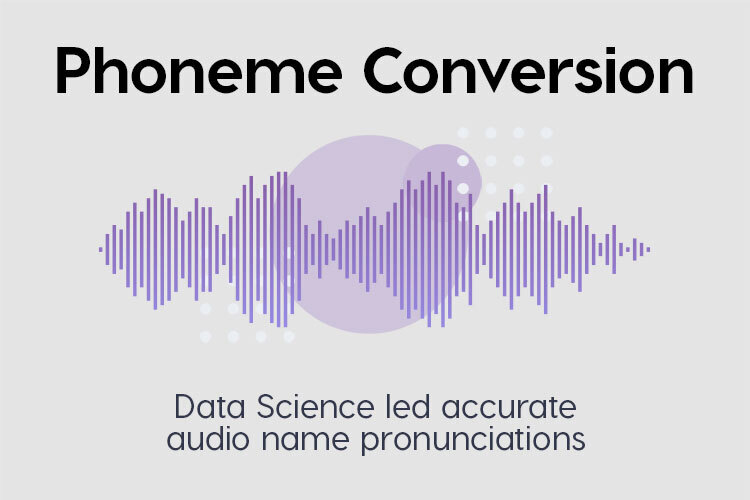
With approximately 30 million unique names in the world, it’s difficult to know the exact pronunciation of a name based on spelling alone. That’s where Namecoach comes in. Our Data Science team is working to map out the best way for English-speaking Americans to say names with difficult, non-English sounds. This project is aimed to give English speakers guidance on how to pronounce names with different sounds, based on the native speakers’ preferences. A fun example of this is the word “cognac.” Many people don’t know that the correct pronunciation of the “gn” sound in French is “ny.” While this example is harmless, it can make for an awkward encounter when ordering a beverage.
So, what exactly is a “phoneme?”
In every language, there are unique speech units that distinguish one word from another that otherwise has the same speech sounds. These speech units are called “phonemes.” Swapping one phoneme for another can completely change the meaning of a word. For example, “cat” and “cap” are two different words, with different meanings, and differ only by one phoneme (“t” versus “p”). Phonemes are specific to each language, which can make learning a new one and understanding its proper pronunciation challenging.
The most comprehensive database… but better
We’re using this research to create guides that will help “convert” sounds from international languages so English speakers can say them correctly. These guides will give Namecoach users direction on each language as a whole, and give guidance on important phoneme distinctions that could change the meaning of a word.
As this project continues, we’ll be educating our users on the accurate pronunciation of a name based on different demographic factors. To understand phonemes in other languages, our team is conducting surveys and interviews with native speakers, as well as text-based research to better understand conversions. In gathering this information, it’s our goal to help our customers avoid making the common mistakes of English speakers when trying to translate a name or make it easier to say.
Take the French language for example. Many French masculine names are spelled with an “n” at the end, such as “Fabien” while the feminine version of these names are spelled with an “ne” at the end, like “Fabienne.” When there’s a written “n” at the end of a French word, it isn’t pronounced. Instead, it just makes the vowel in front of it nasalized. The full “n” sound is pronounced when a word ends in “ne,” in other words, the feminine version of a name. This is an important distinction to make because the difference in many masculine and feminine name pairs in French is whether there is an “n” sound pronounced. Understanding this is critical when engaging with native French speakers. Based on research we now know that they would prefer English speakers to pronounce the masculine version of their names, without the final “n,” so as not to be confused with their female counterparts!
What’s next?
Providing our users with the most accurate name pronunciation recommendations every time is at the center of what we do here at Namecoach. We’re constantly working on expanding our database so, regardless of different demographic factors, you feel confident in every interaction.
With thousands of languages out there, this project will no doubt be ongoing for our team, but you’ll be able to experience the results right within the Namecoach platform.
Interested in seeing these research results in action? Visit our website to see for yourself.




